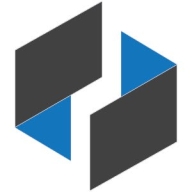

SUSE Linux Enterprise and Composable DataOps Platform focus on different aspects of technology. SUSE appears more stable for enterprises needing a solid operating system, whereas Composable offers innovative data processing for businesses focused on analytics.
Features: SUSE Linux Enterprise offers secure computing with reliable scalability, high performance for IT environments, and strong virtualization and cloud support. Composable DataOps provides advanced automation, seamless data pipeline management, and significant value in data-driven decision-making.
Ease of Deployment and Customer Service: SUSE Linux Enterprise provides straightforward deployment with extensive customer support, fit for traditional IT setups. Composable DataOps features flexible deployment with dedicated customer service, aimed at optimizing data workflows in modern environments.
Pricing and ROI: SUSE Linux Enterprise often requires higher initial setup investment due to its enterprise features but ensures ROI via reduced downtime and system efficiency. Composable DataOps offers competitive pricing with faster ROI thanks to improved data management and operational effectiveness.

Composable DataOps Platform enables new cross-sales channels by connecting disparate data sources, performing advanced analytics to convert in-bound customer service calls.
Composable DataOps Platform, used for high-volume document processing, extracts hidden data in scanned documents used for scoring customers and drive addressable marketing.
Composable DataOps Platform increases the operating efficiency of the customer call center by serving as a comprehensive platform for data collection and actionable analytics.
SUSE Linux Enterprise offers features like YaST for server management, seamless integration with Oracle and SAP, and a robust security setup. Renowned for stability, it efficiently supports workstations, SAP workloads, and cloud migrations across diverse industries.
SUSE Linux Enterprise is known for its lightweight design, high performance, and ease of installation. Its flexible architecture supports extensive documentation and efficient patching. The system uses the BTRFS file system for effective virtualization, and community support is significant. However, challenges include package updates causing conflicts, difficult initial setup and software management, high pricing, and support response times. Improvements in security compliance, cloud integration, hardware compatibility, and documentation are also needed.
What are SUSE Linux Enterprise's important features?
What benefits should users expect from using SUSE Linux Enterprise?
Industries like healthcare and banking use SUSE Linux Enterprise for secure transactions and structured application deployment. It is also a choice for organizations involved in testing, automation, and web development, offering support for SAP HANA integration and facilitating cloud migrations.
We monitor all AWS Marketplace reviews to prevent fraudulent reviews and keep review quality high. We do not post reviews by company employees or direct competitors. We validate each review for authenticity via cross-reference with LinkedIn, and personal follow-up with the reviewer when necessary.